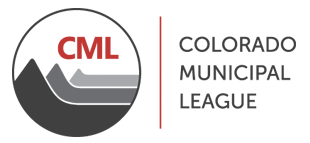In This Section
Land use preemptions challenged - Cities and towns move to keep local control local and home rule at home.
DENVER, Colo. – May 19, 2025 – Today, several Front Range home rule cities filed a lawsuit to challenge two land use laws passed by the Colorado General Assembly in 2024, HB24-1304 (“Minimum Parking Requirements”) and HB24-1313 (“Housing in Transit-Oriented Communities”).
While not a party to the lawsuit and in keeping with policy to oppose any state action that attempts to weaken home rule authority and flexibility, the Colorado Municipal League (CML) opposed the package of legislation in 2024 that sought to take over control of local land use processes and zoning standards. These included HB24-1304, HB24-1313, HB24-1107 (“Prohibit Residential Occupancy Limits”), and HB24-1152 (“Accessory Dwelling Units”).
“Colorado municipalities will not be bullied by an administration and legislature that gives lip service to local control but does not understand or respect home rule authority,” said Kevin Bommer, CML executive director. “Local elected officials swore to uphold the same state constitution as state legislators and the governor. That includes the home rule amendment to the constitution that guarantees local control over matters of local and municipal concern, such as land use authority. This was always going to end in litigation, given the refusal to respect the constitution and local officials’ obligation to defend their communities’ desires,” said Bommer.
“On the heels of the governor's attempt to punish municipalities via executive order by withholding funds for those he doesn’t think are complying with state mandates, it is important to highlight that the governor has previously championed home rule authority,” said Bommer. “Quite ironically, he made the best argument for home rule authority and local control back in a 2015 amicus curiae brief to the Colorado Supreme Court.
“Not only is local governments' robust land use authority supported legally, it also makes sense from a policy perspective. A local government is elected to represent its community members and is ultimately responsible for preserving the character of the community. Local governments are best suited to meet the unique land use needs of their community through transparent public processes. Local planning involves widespread citizen input and broad stakeholder involvement. When addressing contentious issues, local governments have more opportunities for public participation than a state or federal government. As such, land use tools allow local governments to act consistently with their constituents' expectations." Amicus Curiae Brief of Congressman Jared Polis in The City of Fort Collins v. Colorado Oil and Gas Association, No. 15SC668, Colorado Supreme Court (Aug. 17, 2015). (Emphasis added)
“At that time, Gov. Polis’s support for local land use authority was unequivocal. We could not have said it any better ourselves,” said Bommer.
Colorado municipalities have been leaders and innovators on housing and land use issues for decades, and they listen to the desires of residents on community growth, how to plan, and the capacity to provide essential services. Municipalities have taken a diverse approach to the statutes. Some have chosen to modify their zoning codes to roughly mirror the standards of some or all the 2024 laws. In some cases, only minor changes were needed, as in the City of Wheat Ridge where the city’s accessory dwelling unit ordinance simply needed to remove an owner occupancy requirement. Others, like the City of Longmont, had previously deleted minimum parking requirements even before the passage of HB25-1304. Still others are engaging in a thorough analysis as part of regular updates to zoning codes.
“With so many common goals, it is so unfortunate that the state continues to pursue preemption and mandates, instead of working with local governments in a collaborative manner,” said Bommer. “The last three legislative sessions could have been spent working to solve housing shortages. Instead, the dogged insistence on telling local leaders what is best for their communities – followed by this weird flex of threatening to withhold grant funds – has been a greater detriment to building more housing than has market conditions, inflation, and all the other factors that Colorado has experienced. In those three years of successive preemption attempts, the state could have been partnering with municipalities that know the implications of land use decisions the best. Instead, the state chose to attempt to impose a top-down, inflexible approach that ignores local expertise and residents of each municipality.”
“The Colorado Municipal League looks forward to supporting cities and towns however they choose to address these statutes and plan to continue advocating for the right solutions to housing challenges, as well as ‘partnership, not preemption,’” said Bommer.
###
Colorado Municipal League (CML) is a nonprofit, nonpartisan organization established in 1923 and represents the interests of 270 cities and towns. For more information call 303-831-6411 and stay connected on Facebook, X, LinkedIn and YouTube.
Kevin Bommer, executive director, kbommer@cml.org
Denise White, engagement and communications manager, dwhite@cml.org
